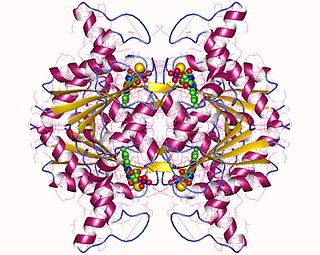| orotate reductase (NADH) | |||||||||
|---|---|---|---|---|---|---|---|---|---|
| Identifiers | |||||||||
| EC no. | 1.3.1.14 | ||||||||
| CAS no. | 37255-26-8 | ||||||||
| Databases | |||||||||
| IntEnz | IntEnz view | ||||||||
| BRENDA | BRENDA entry | ||||||||
| ExPASy | NiceZyme view | ||||||||
| KEGG | KEGG entry | ||||||||
| MetaCyc | metabolic pathway | ||||||||
| PRIAM | profile | ||||||||
| PDB structures | RCSB PDB PDBe PDBsum | ||||||||
| Gene Ontology | AmiGO / QuickGO | ||||||||
| |||||||||
In enzymology, an orotate reductase (NADH) (EC 1.3.1.14) is an enzyme that catalyzes the chemical reaction
- (S)-dihydroorotate + NAD+ orotate + NADH + H+
Thus, the two substrates of this enzyme are (S)-dihydroorotate and NAD+, whereas its 3 products are orotate, NADH, and H+.
This enzyme belongs to the family of oxidoreductases, specifically those acting on the CH-CH group of donor with NAD+ or NADP+ as acceptor. The systematic name of this enzyme class is (S)-dihydroorotate:NAD+ oxidoreductase. This enzyme is also called orotate reductase (NADH). This enzyme participates in pyrimidine metabolism. It has 2 cofactors: FAD, and FMN.







